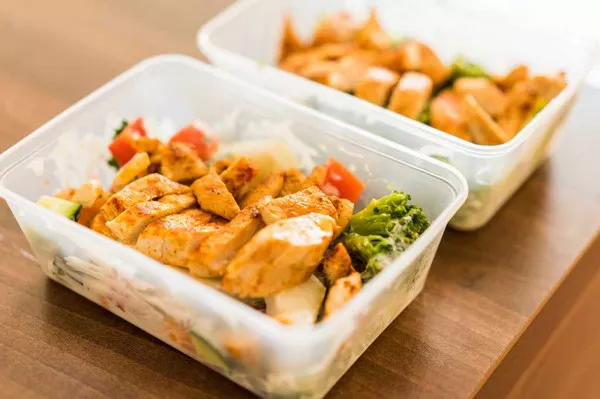In the quest for achieving a healthier and more vibrant lifestyle, one of the key components is undoubtedly maintaining an optimal weight. A crucial aspect of this journey is understanding what to eat to promote weight loss effectively. In this comprehensive guide, we will delve into the intricacies of a diet designed for weight loss, exploring six key items that can transform your approach to nutrition.
Lean Proteins: The Foundation of a Weight-Loss Diet
When aiming for weight loss, incorporating lean proteins into your diet is paramount. Options such as skinless poultry, fish, tofu, and legumes are not only rich in essential nutrients but also contribute to a feeling of fullness, reducing overall calorie intake.
Research indicates that a higher protein intake can boost metabolism and promote the preservation of lean muscle mass during weight loss. According to a study published in the American Journal of Clinical Nutrition, individuals on a high-protein diet experienced greater satiety and fat loss compared to those on lower protein diets.
Fiber-Rich Foods: A Crucial Component for Sustained Weight Loss
Including ample fiber in your diet is a strategic move for weight management. High-fiber foods, such as whole grains, fruits, and vegetables, not only provide essential vitamins and minerals but also contribute to prolonged feelings of fullness.
Studies have shown that a high-fiber diet can aid in weight loss by promoting a slower digestion process, regulating blood sugar levels, and reducing overall calorie intake. The National Institutes of Health recommends a daily fiber intake of 25 grams for women and 38 grams for men.
Healthy Fats: Navigating the Good vs. Bad Fats
Dispelling the myth that all fats are detrimental to weight loss, incorporating healthy fats into your diet is crucial. Avocados, nuts, seeds, and olive oil are excellent sources of monounsaturated and polyunsaturated fats that can support weight loss efforts.
The British Journal of Nutrition suggests that a diet rich in healthy fats may aid in weight loss and improve overall body composition. These fats contribute to feelings of satiety and assist in the absorption of fat-soluble vitamins, further enhancing the nutritional value of your meals.
Complex Carbohydrates: The Energy Sustainers
Contrary to popular belief, not all carbohydrates are the enemy. Opting for complex carbohydrates like whole grains, brown rice, and quinoa can provide sustained energy, crucial for maintaining an active lifestyle.
A study published in the Journal of the American College of Nutrition highlights that complex carbohydrates contribute to a steady release of glucose into the bloodstream, preventing energy crashes and unnecessary snacking. This can be instrumental in adhering to a calorie-controlled diet.
Hydration: The Overlooked Key to Weight Loss
Often underestimated, staying adequately hydrated is a fundamental aspect of any weight loss journey. Drinking water before meals can contribute to a feeling of fullness, potentially reducing overall calorie intake.
A randomized controlled trial published in the journal Obesity found that increased water consumption was associated with greater weight loss during a 12-week period. The study suggested that integrating water intake as part of a comprehensive weight loss strategy could yield significant results.
Mindful Eating: Transforming Habits for Long-Term Success
Beyond the specific foods, cultivating mindful eating habits is pivotal for sustainable weight loss. Paying attention to portion sizes, savoring each bite, and avoiding distractions during meals can contribute to a more conscious approach to eating.
The American Journal of Clinical Nutrition reports that practicing mindful eating techniques can lead to a reduction in calorie intake and improved weight management. This approach encourages a deeper connection with food, fostering healthier relationships with eating habits.
Conclusion:
In conclusion, the journey to weight loss involves more than just counting calories; it’s about making informed and sustainable choices regarding what to eat. By incorporating lean proteins, fiber-rich foods, healthy fats, complex carbohydrates, staying hydrated, and practicing mindful eating, you can create a well-rounded and effective approach to achieving and maintaining a healthy weight. Remember, each person’s body is unique, so it’s essential to consult with a healthcare professional or nutritionist to tailor these guidelines to your individual needs and goals.
Related Links:
Optimal Post-Late Night Workout Nutrition: Fueling Your Body for Success
Unlock Your Post-Workout Potential with these Healthy Carbs
Fueling Weight Loss: A Comprehensive Guide on What to Eat to Stay Full and Shed Pounds


